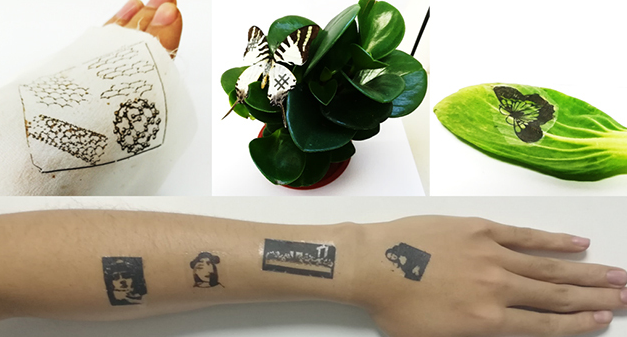Chinese scientists have developed a graphene-based tattoo-like electronic skin, which could function as a wearable electronic device to monitor health.
近日,我国科学家研发出一种基于石墨烯、类似纹身的电子皮肤,可充当可穿戴电子设备监测健康状况。
Electronic skin or e-skin refers to thin, flexible and stretchable electronic material that mimics human skin and can sense pressure, temperature and stretch.
电子皮肤指的是一种轻薄、柔软、可伸缩的模仿人类皮肤功能的电子材料,能感知压力、温度和拉伸。
Scientists from Tsinghua University demonstrated a graphene electronic skin based on laser scribing technology.
清华大学的科学家基于激光直写技术展示了石墨烯电子皮肤。
With the assistance of water, the electronic skin is transferable not only to human bodies, but also to other substrates such as leaves and silk.
通过水的辅助,电子皮肤不仅可被转移到人体上,还可被转移到树叶、丝绸等基质上。

It could be attached to human skin as well as masks and throats to measure body signals such as breathing, heartbeat and voice.
电子皮肤还可以贴附在人的皮肤、口罩和喉咙上以实现对呼吸,心跳,语音等身体信号的测算。
It can withstand higher temperatures and is comfortable to wear.
此外,它还可以耐高温、佩戴起来很舒适。
With laser scribing technology, the pattern of the graphene-based electronic skin can be personalized, a feature that will help future commercialization.
通过激光直写技术,石墨烯电子皮肤的图案可进行个性化处理,该特征将有助于今后的商业化。
The electronic skin has huge potential in health care and intelligent systems, according to the scientists.
科学家称,电子皮肤在医疗和智能系统都具有很大的潜力。













